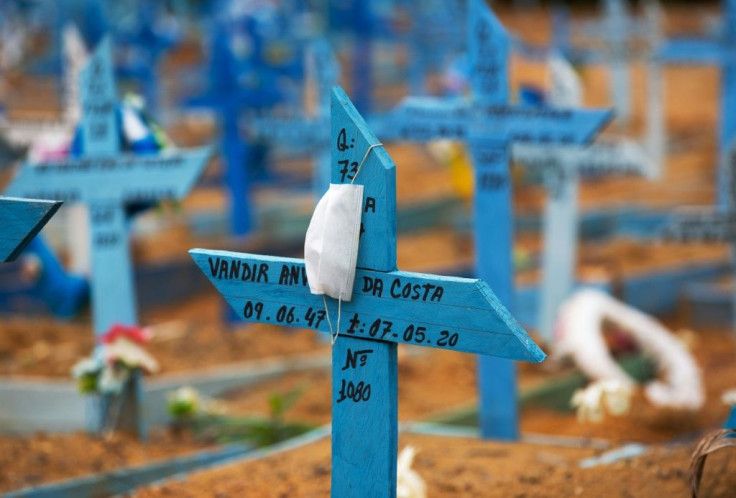What Is The B117 Strain? Questions Surround New COVID-19 Variant
KEY POINTS
- B.1.1.7. is a mutated strain of COVID-19 first discovered in the U.K. that is much more infectious
- Four cases have been reported in the U.S., and while numbers are low now the variant is likely to spread fast
- Normal COVID-19 patients are already putting hospitals at capacity, meaning long waits for anyone with a medical emergency
The hyper-contagious COVID-19 strain B.1.1.7. has made its way to the U.S. with four known cases and concerns that it could spread. The strain raises public health questions at a time when many parts of the world have seen sharp surges of COVID-19 cases.
What is B.1.1.7.?
B.1.1.7. is a mutated strain of the virus that causes COVID-19. It was first discovered in the United Kingdom, and within two months had grown from 25% of COVID-19 cases in the U.K. to 60%.
That rapid spread is because B.1.1.7.’s mutated binding proteins make it much more infectious than standard COVID-19, an already highly infectious disease.
Heightened infection rates seem to be the only difference, with mutations like greater lethality or resistance to treatments thankfully absent.

How will B.1.1.7. affect the U.S.?
B.1.1.7. is already in the country, with California, Colorado, Florida and New York reporting cases.
B.1.1.7.’s high infection rate makes it difficult to contain, and the delayed onset of symptoms characteristic of COVID-19 makes it safe to assume other B.1.1.7. cases are present in the U.S.
Overburdened hospitals are already struggling to contain a holiday surge of standard COVID-19 cases. The U.K. saw cases spike as B.1.1.7. spread, and U.S. medical facilities are reaching capacity even without B.1.1.7.'s influence.
If B.1.1.7. further crowds hospitals, that could mean longer wait times not just for COVID-19 patients but for anyone having a medical emergency.
NEW: The Wadsworth Lab has confirmed New York State’s first case of the U.K. variant (B.1.1.7) of the virus that causes COVID.
— Archive: Governor Andrew Cuomo (@NYGovCuomo) January 4, 2021
An individual from Saratoga County, New York, tested positive for the strain. The individual had no known travel history.
Is the COVID-19 vaccine effective against B.1.1.7.?
B.1.1.7. is vulnerable to the same treatments as COVID-19. Experts believe that those with COVID-19 antibodies, whether from a vaccine or from contracting standard COVID-19, are likely resistant to B.1.1.7 as well.
Resistance has not yet been proven by a clinical study.
Are there more strains out there?
B.1.1.7. isn’t the only new reported strain. South Africa found an unrelated but similarly more infectious strain called B.1.351. It’s not currently known if the South African strain is present stateside.
A third variant has been found in Nigeria, but it does not seem to be more infectious or more severe than standard COVID-19, making it a matter of taxonomy rather than public health.
© Copyright IBTimes 2024. All rights reserved.





















